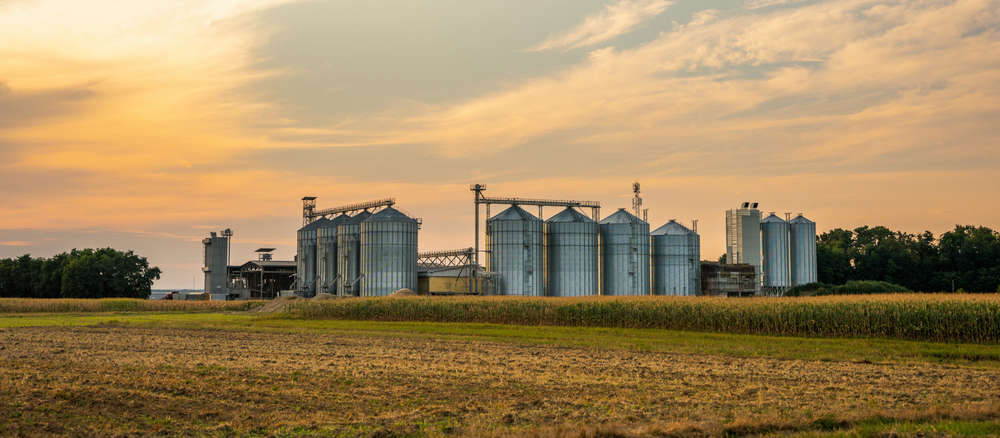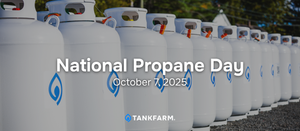Introduction: Why Crop-Drying Matters in New England
When autumn arrives in New England, the fields of corn, grain, and other crops shift from green to gold. But before those harvests make their way to storage bins or markets, farmers must address a critical challenge: moisture. Wet crops can spoil quickly, leading to financial loss and supply chain disruptions. That’s where crop-drying with propane becomes essential.
For farmers, propane is more than just a fuel—it’s the backbone of fall harvest. And for local communities, this seasonal surge plays a major role in shaping propane demand across New England.
What Is Crop-Drying?
Crop-drying is the process of using heated air to lower the moisture content of harvested grains and crops to safe storage levels. Without proper drying, crops risk mold growth, reduced quality, and significant losses in value.
While natural gas and electricity can power dryers in some regions, many rural New England farms lack access to these energy sources. That’s why propane remains the preferred fuel—it’s reliable, portable, and delivers the high-BTU energy required for efficient drying.
Why Propane Is the Fuel of Choice for Farmers
Farmers across New England rely on propane crop dryers because propane offers:
- Efficiency: High energy output translates into faster, consistent drying.
- Portability: Propane can be delivered directly to farms, even in rural areas.
- Clean Burning: Propane reduces the risk of crop contamination, a key concern for food-grade harvests.
- Dependability: Tanks and monitors ensure steady supply during peak demand.
At Tankfarm, our proprietary technology helps farmers and homeowners alike monitor their propane usage, preventing unexpected shortages at critical times.
Seasonal Spike in Propane Demand
Every fall, propane demand spikes in New England—and crop-drying is a major driver. Farmers must run dryers around the clock during harvest season, consuming thousands of gallons in just a few weeks.
This surge creates ripple effects for local propane suppliers and homeowners:
- Supply Allocation: Providers must balance agricultural needs with residential heating customers.
- Price Fluctuations: Higher demand during harvest season can influence regional propane pricing.
- Delivery Logistics: Rural routes become busier as suppliers deliver to both farms and homes.
By planning ahead and scheduling propane fills early, homeowners can avoid delays during the busiest time of year.
The New England Harvest Connection
New England’s agricultural economy may not rival the Midwest, but corn, hay, barley, and specialty grains remain essential for the region’s livestock industry and local food producers. In fact, many of these crops are used for dairy feed—a cornerstone of New England farming.
For these farmers, propane-powered crop-drying ensures stability. Without it, wet harvests would jeopardize food supply chains, dairy production, and rural livelihoods.
How Tankfarm Supports Farmers and Homeowners
Tankfarm recognizes that when New England farmers thrive, communities thrive. Our propane systems are designed to deliver value, safety, and comfort for both agricultural and residential users. Here’s how we support customers during harvest season:
- Smart Monitoring: Real-time tank monitoring prevents farmers and homeowners from running out of fuel.
- Efficient Deliveries: Our technology routes drivers efficiently, keeping propane flowing during peak demand.
- Transparent Pricing: We share our efficiency savings with customers, providing lower prices without hidden fees.
Preparing for Fall: Tips for Homeowners
While farmers prepare their fields, homeowners should prepare their tanks. Fall is the best time to schedule fills and inspections because demand is about to skyrocket. Tankfarm recommends:
- Checking tank levels before the end of October.
- Scheduling delivery early to avoid delays.
- Considering propane for backup generators during storm season.
Conclusion: Fueling the Harvest and the Home
Crop-drying may sound like an agricultural detail, but in New England, it’s a driving force behind seasonal propane demand. Farmers rely on propane to protect their harvests, while homeowners depend on it to stay warm as temperatures drop.
At Tankfarm, we’re proud to power both. Whether you’re bringing in corn from the fields or prepping your home for winter, our technology and service ensure that you never run out of propane when it matters most.
👉 Check your service area and get a quote today.




